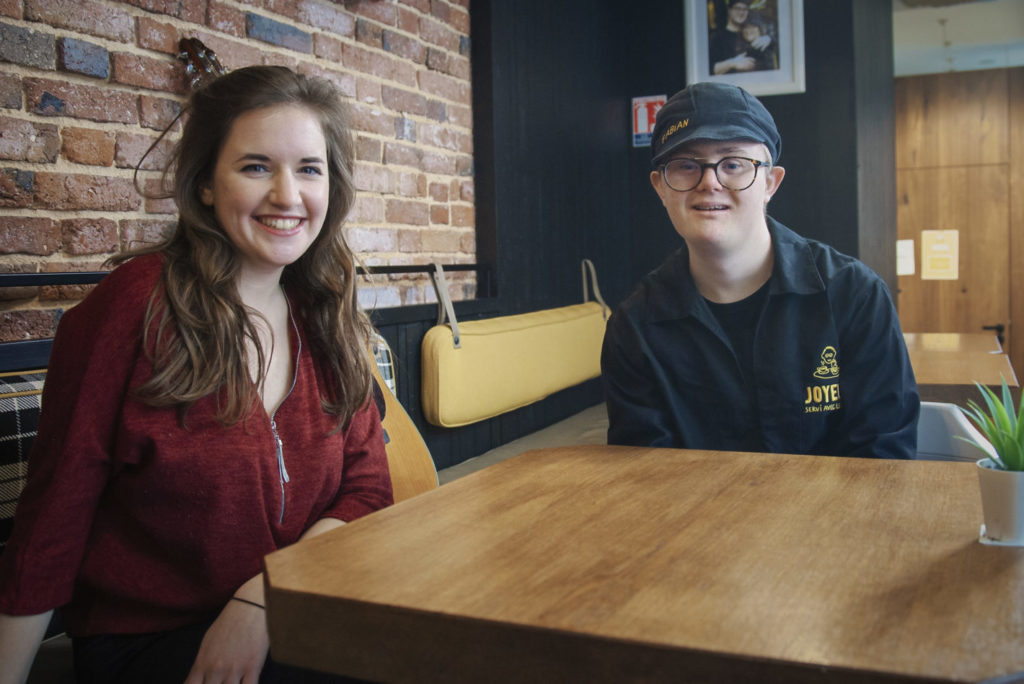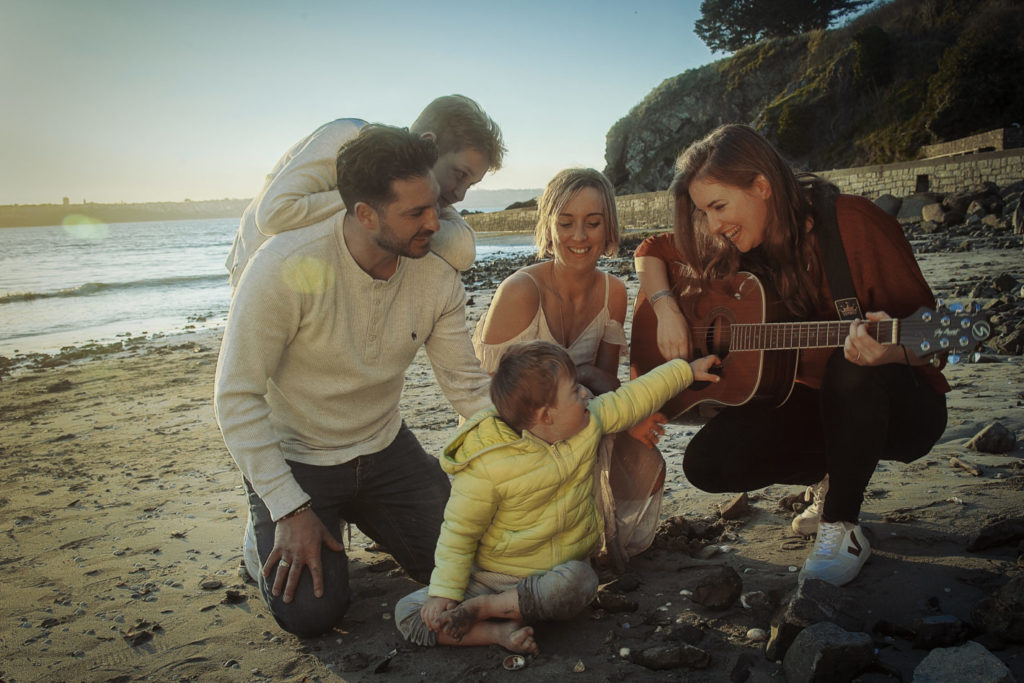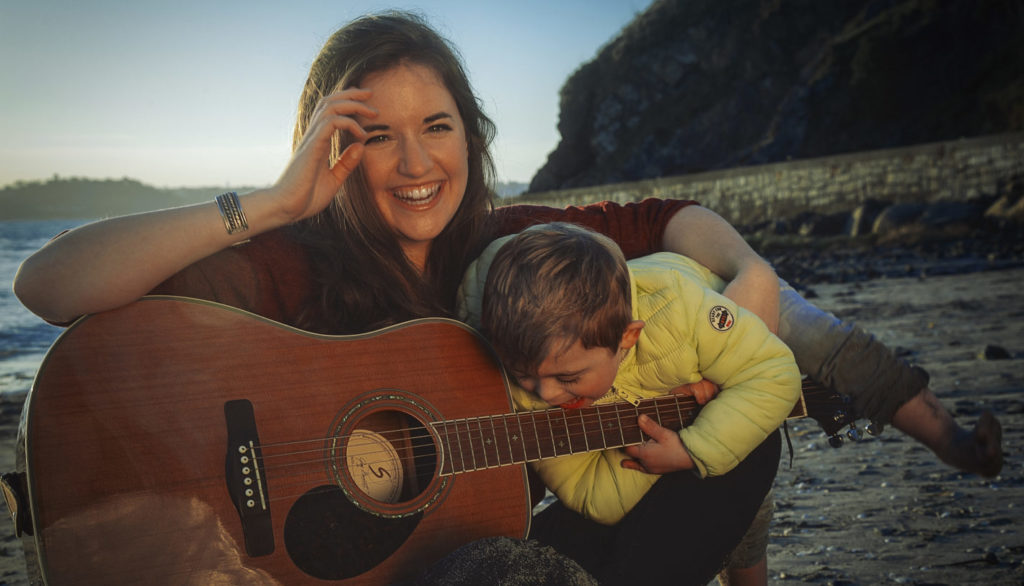Translation of the article into English
Since 2011, by decision of the United Nations General Assembly, March 21 has been celebrated as World Trisomy 21 Day. In France, this date has a special character because it was the prominent French geneticist Jérôme Lejeune who, when he was about 30 years old, discovered the origin of this syndrome and dedicated his life to research and, above all, to caring for people with Down syndrome. By the very nature of his discovery, the famous scientist was aware that by advancing science he was at the same time putting at risk the lives of these people who were left at the mercy of the drama of abortion: today in France more than 90% of the pregnancies in which this syndrome is diagnosed end in abortion. Lejeune died in 1994, but his legacy continues to exist through the Foundation and the Institute that bear his name and this world day in which we are invited to wear unmatched socks (because of their similarity to chromosomes) (in order to promote the difference).
Recently, several initiatives have shown French public opinion the importance of inclusion and diversity of people with different types of disabilities and specifically trisomy 21. Films such as "Hors normes" ("Outside the law"), "Apprendre à t'aimer" ("learning to love you") and "De Gaulle" have put these issues on the big screen. The first shows the heroism of people in charge of different social inclusion associations. The second tells the transformative story of a young French family who have a daughter with Down syndrome. Finally, the film "De Gaulle" (by Gabriel Le Bomin) gives a leading role to the daughter of the famous French general and politician: Anne, born with trisomy and deceased at the age of 20, held a very special place in the heart of Charles de Gaulle, being his strength, joy and inspiration in the countless battles that the founder of the Fifth French Republic had to face.
In the area of social entrepreneurship, some European cities have seen the opening of "Cafés Joyeux" (Joyful Cafés) in their downtown neighborhoods. This project of entrepreneur Yann Bucaille-Lanrezac, who received a few days ago the social entrepreneur award from the Boston Consulting Group (BCG), employs people with disabilities in typically French cafés. The most famous of them is located no less than a few meters from the Arc de Triomphe on the very Avenue des Champs-Elysées and was inaugurated by the President of France, Emmanuel Macron, together with his Minister in charge of people with disabilities, Sophie Cluzel. Cluzel was not chosen for nothing for this sensitive position: she is the mother of young Julie (born in 1995) with Down Syndrome and has dedicated most of her professional life to the integration of these people.
At the Café Joyeux located on the "most beautiful avenue in the world" we met another voice for the inclusion of children with trisomy 21: the French artist Cilou. One year ago, on March 21, 2021, a very symbolic date for carriers of three chromosomes 21, the young 27-year-old artist put music and choreography to the biography of a child, Louis, from the time he is in his mother's womb until he starts working in a café Joyeux. Our conversation is constantly enlivened by the music, the atmosphere and the dances of the employees who work here. The presence of the young artist is no stranger to the enthusiasm that quickly settles this evening in the premises of the Champs Elysées. Our dialogue will be cheerfully "interrupted" many times by two attentive young coffee professionals.

How did you come up with the idea of composing a song and a video about this topic?
-During the time of confinement, I wanted to compose a song about joy. As we all know from experience, those months were very hard and difficult. I try to make my songs convey values about real people's lives. The idea of trisomy 21 came up when the year 2021 started, which made me think about people who have three chromosomes 21. In our society today, and this is something that I think is very positive, difference, diversity, is constantly celebrated because we are all different.
However, many times we tend to equalize ourselves, to erase the differences, to not be ourselves to look like others or to adapt to what we think society imposes on us. The authenticity, the difference and the joy of people with Down syndrome pushes us to be ourselves in front of them who are completely themselves, without playing any role, without hiding behind any mask. They have a natural and contagious joy, it is something that everyone recognizes in them. My song speaks in a way of this joy of existing, of living, of being different: long live the difference!
Who is Luis the boy in your song?
-When I came up with the idea of composing this song about disability, I started looking on Instagram for stories of families with children with trisomy 21. I didn't want my song to be something theoretical, I really wanted it to be something true, embodied in a real story. In my close environment I didn't know any children with this disability. That's how I found the account Louis le super hérosIn it, this family from Brittany (western France) tells the story of the life of this little Louis. I liked it very much, I contacted them and they accepted my idea with great enthusiasm. Louis is now 5 and a half years old. In the song, I put myself in his place and speak in the first person: that when I was in my mother's womb, I dreamed of my life, and that I had a well-kept secret. At the moment of birth, I describe the astonishment of my parents, which is what many families go through in these cases. And the main stanza speaks of joy, that I am joyful, that I don't want to bother anyone, only that I am different and that I want to be loved.

She says that her secret is her extra chromosome, which is her "super power" to make the world more beautiful. She also talks about her family, her big brother, her parents, and the difficulties, but also the joys, which may arise, but in the end they all surrender to her immense heart and affection. He also speaks of the beauty of fragility and of moving away from conformism. He also says that when he grows up, his parents will be concerned about his autonomy and his integration. At that moment we show a young man who goes to work in a Joyeux café (in the city of Rennes, in Brittany), where there is no fear or prejudice, only the pride of being different and competent. The song ends with the ideas that seem to me the main ones: I don't want to bother, I just want to love, life is lucky, long live the difference! In the video you can see the people of his family, and of his environment, even the mayor of the city.
Where does your artistic vocation and your commitment to this cause come from?
Since I was very young I went to the conservatory: music and art have always been present in my life. I studied business administration. When I finished my studies, I went on a humanitarian trip to Indonesia where I taught guitar to young people at social risk. We created a song and a video with their story and several others that were very popular. Back in France, I started working in marketing for a big French group. I liked it a lot but I felt that I could combine all my skills and my desire to have an impact in something more artistic: that's how Cilou was born! My songs and videos are generally about existential, deep themes, based on the experiences of people going through difficult moments such as the loss of a mother, doubts about their place in the world, encounters, etc.
Humanitarian trips are transformative because they help you see the world through different eyes. In my case, people with mental disabilities have always been present in my life because my parents took us once a month to play and to take care of these people within the framework of an association. When I was a student in northern France, I was involved in an initiative that organized plays and musicals for young people with disabilities.
Anyway, I think that the integration and respect of these people is a very important and positive battle. But it is something general, for the common good, because we are all different, we all have our frailties, and we all want respect and a place in the world.









